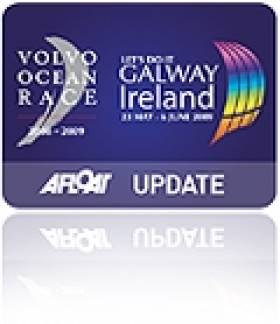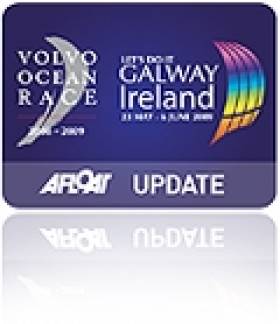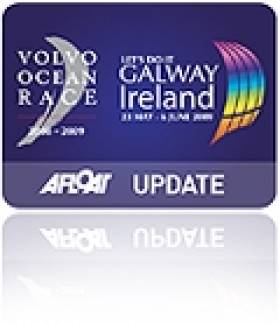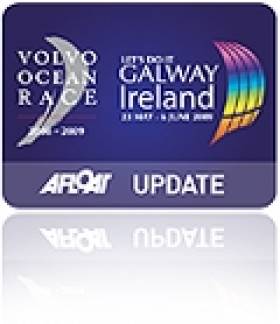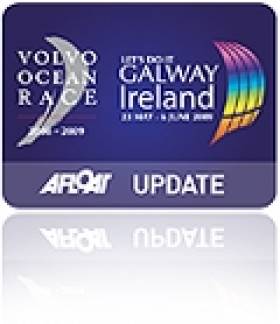Displaying items by tag: Let's Do It Galway
Volunteers Wanted for VOR Galway Festivities
#VOLVO OCEAN RACE - Organisers of the Volvo Ocean Race finale in Galway are appealing for 2,000 volunteers to help make the stopover a rousing success.
The eight-day festival of the marine, sport, arts and culture, entertainment and food to celebrate the arrival of the Volvo Ocean Race competitors as they cross the finish line is expected to attract as many as 700,000 visitors to the City of the Tribes from 30 June to 8 July.
Let's Do It Galway are looking for students, retirees and "anyone in the Galway community" willing to commit from two to nine days during the week to take part in what they describe as "a great way to make new friends and boost career prospects while boosting Galway and Ireland in the eyes of the world".
All volunteers will be invited to a special 'wrap-up gala', and organisers also promise prizes and surprises along the way.
Information sessions will take place throughout April and May in and around Galway, and applicants will be matched to roles in early June.
The Galway Independent has more on the story HERE.
Volvo Ocean Race in Galway Will See Irish Food in Focus
#VOLVO OCEAN RACE - Top chef Maurice Keller was in Abu Dhabi last week to fly the flag for Irish food at the third stopover of the Volvo Ocean Race, Waterford Today reports.
Keller spent a few days away from Waterford's Arlington Lodge to join members of Good Food Ireland, Tourism Ireland and Irish embassy staff for a special 'Ireland Day' at the VOR Village.
The initiative was designed to promote Ireland as a prime tourist destination ahead of this summer's Volvo Ocean Race visit to Galway.
And food will play a major role in efforts to attract visitors to the finish line in Galway this July, according to the Limerick Post.
Foodies from across the mid-west will converge at a 'Foodie Forum' at the Galway-Mayo Institute of Technology on 2 Feburary, where plans to showcase Irish food in the city will be top of the agenda.
“At the launch of the countdown to the Volvo Ocean Race, the Let's Do It Galway team announced the four main pillars of the race next summer – marine, green, innovation and food," said Cáit Noone, head of the Hotel School at GMIT.
"The food pillar will provide Ireland with a global showcase opportunity to share with the world our food experiences and the outstanding locally sourced produce we have to offer.”
Night of Appreciation for VOR Galway Figurehead John Killeen
#VOLVO OCEAN RACE - An appreciation night was held in Galway last week for John Killeen, who has played a significant role in bringing the Volvo Ocean Race to the city.
As the Galway Independent reports, prominent business leaders and tourism officials were on hand at the Galway Bay Hotel on 17 January to honour the president of Let's Do It Galway - who was also one of three founding members of Ireland's entry in the 2008-2009 race, and was instrumental in bringing that race to the City of the Tribes.
Dan Murphy, president of tourism body Skål International Galway, said it was "only correct and proper" for the travel and tourism industries to recognise Killeen’s contributions to Galway and especially the work he has done bringing the Volvo Ocean Race back to Ireland.
Galway's 2012 VOR Stopover Will Be 'Bigger and Better'
#VOLVO OCEAN RACE - Organisers for next year's Volvo Ocean Race stopover in Galway have promised the event will be "bigger and better" than the previous race visit in 2009.
John Killeen, president of Let's Do It Galway, told the Galway Independent that he expects as many as 8,000 foreign visitors to the City of the Tribes next July.
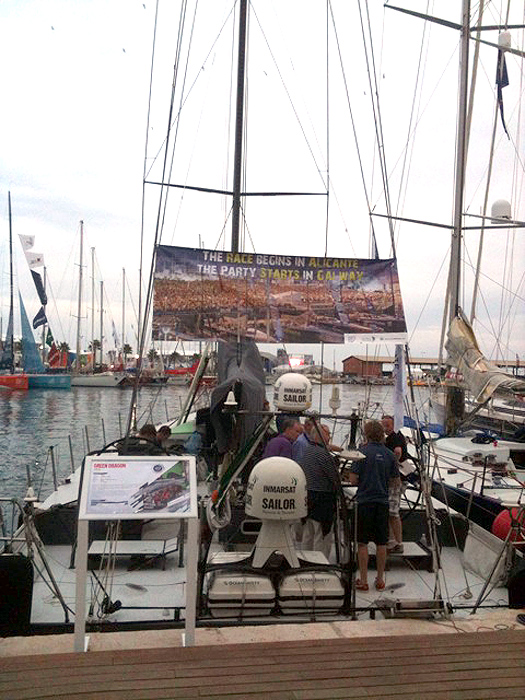
Green Dragon on show in Alicante this week – her dockside poster reads: 'the race begins in Alicante, the party starts in Galway'
Killeen is in Alicante on the Spanish Mediterranean for the week of events and in-port races leading up to the official start of the 2011-12 Volvo Ocean Race this Saturday.
The race is set to finish in Galway on Tuesday 3 July 2012, attracting the world's media to Ireland's fifth largest city for the final prize-giving.
Nimmo's Pier will be the focus of entertainment facilities for the many thousands expected to throng the city as the six competing yachts complete their epic challenge.
"It’s a rare opportunity for Galway and Ireland to have the leverage of such an event and, if we don’t [use it to benefit Galway], it will be remissible,” said Killeen.
The Galway Independent has more on the story HERE.
Green Dragon Sails Again
Ireland's Volvo 70 the Green Dragon was back on the water again yesterday, two years after she had finished fifth out of seven entries in the 2009 Volvo Ocean Race.
Attempts to sell it for two million euros in 2009 did not materialise. Since then, the round the world yacht has been in dry dock in Galway, rendered obsolete because her hull was heavier and keel lighter than her rivals.
In spite of the disappointing performance the boat was welcomed in to Galway after the 2009 Transatlantic leg by a huge crowd and a week long celebration that has subsequently set the bar for all other stop over ports in the 2012 race.
After being refitted and repaired recently, the Green Dragon sailed out of Galway Docks yesterday for a tour of the bay, before she sets sail for Holland tomorrow.
Ireland's entry in the 2008-9 Volvo entry race will be taking part in the Frankfurt Motor Show promoting the Volvo Ocean Race 2012 and the Global Village in Galway where the race will end next July.
Speaking to Galway Bay FM News, Green Dragon Chairman of Let's Do it Global Enda O'Coineen says 'the sail went great'.


























